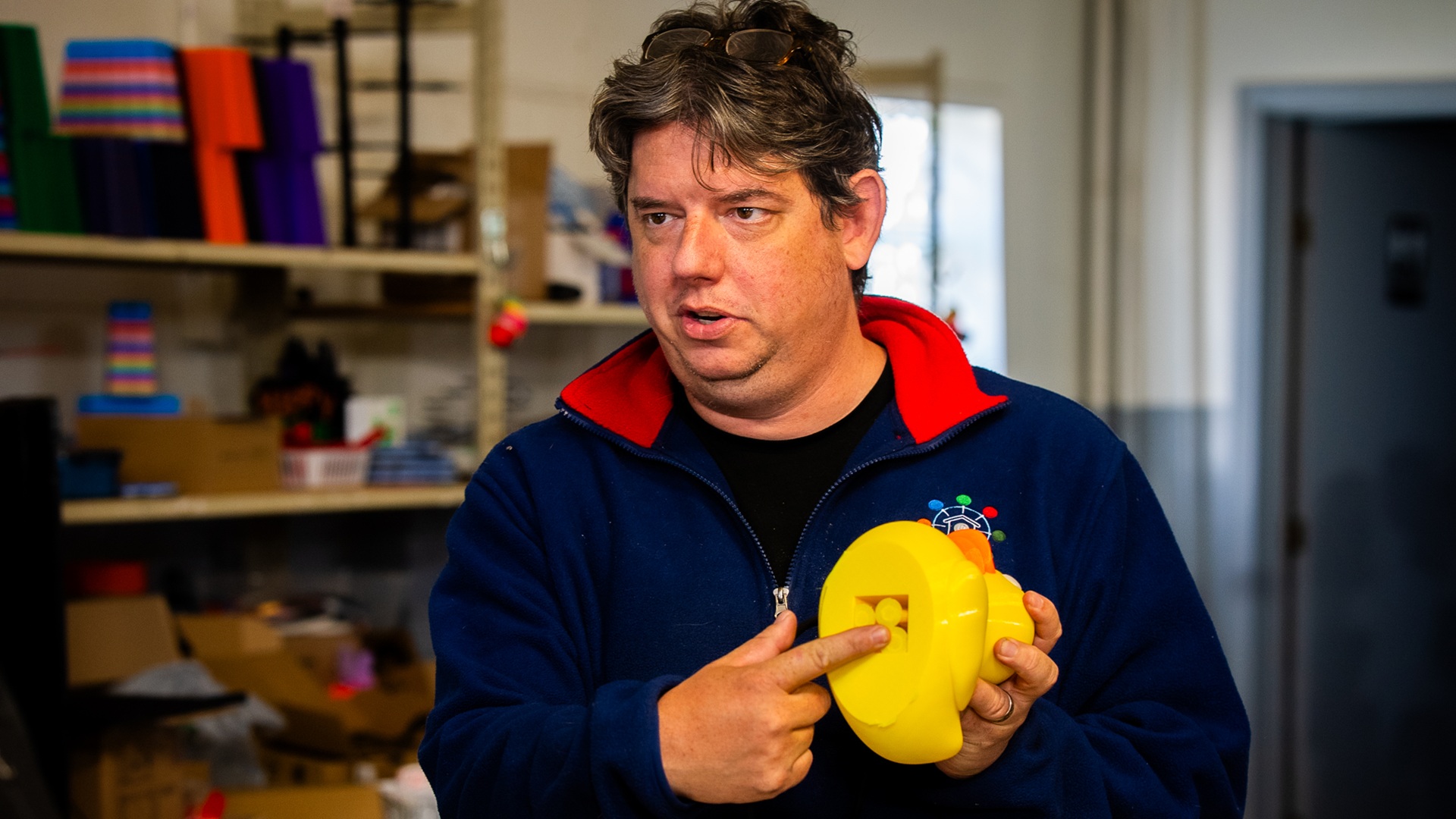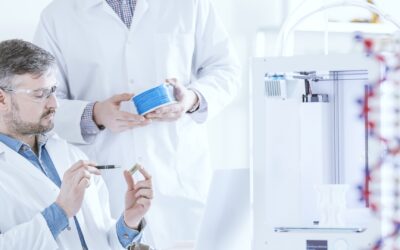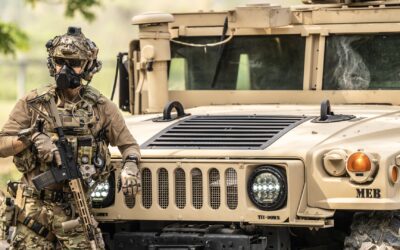Six months ago, Digital Handyman and 3D3 Custom Solutions founder Anthony Maurice didn’t have a 3D printer. Now he has more than 20 in his Madison Heights shop and isn’t slowing down anytime soon.
As he walks through the shop floor, Maurice checks on multiple jobs running on the printers: Christmas toys bound for a Toledo mall store, custom penholders, filament rings for 3D printing material, and local band merchandise embedded with QR codes.
“I’ve been building computers and playing with tech since I was 10 years old. I never thought I was creative, but the things I’ve been doing lately awakened something inside of me,” Maurice said.
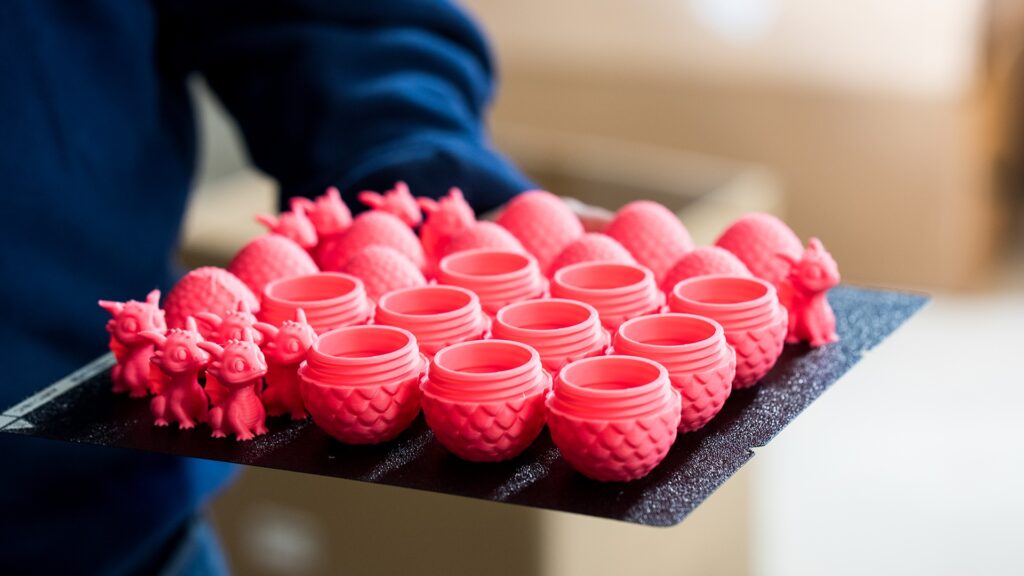
In June, Maurice took the course at Project DIAMOnD Academy®, where he learned to operate a 3D printer, design for additive manufacturing, post-process prints, select materials, and create new revenue streams through additive manufacturing.
As a graduate, Maurice said the training made his business do a 180.
“I hadn’t really seen 3D printing much before Project DIAMOnD,” he said. “It was all just in YouTube videos and stuff online. I understood it existed, but the quality wasn’t what I thought of until I did Project DIAMOnD and got into the nuts and bolts of making the quality better and more reliable.”
Prior to the course, Maurice’s only experience with manufacturing training was an introductory CAD class in high school.
“The nice thing about 3D printing is that trial and error is easy—it’s where I figure things out,” he said. “You can always do a small version and find what needs to be fixed before a big version. The material isn’t very expensive. Or if you want to use expensive materials, you can print it in PLA before getting into nylon.”
Though the vehicle of how Maurice delivers his services has changed drastically with 3D printing, his original mission remains the same—making things easier and more accessible through technology.
The starting line
“It [Digital Handyman] started with my son, who suffers from an extremely rare genetic syndrome called Pallister-Killian,” Maurice said. “He is 10 years old and can’t walk. He can’t talk. So what I did was go through my house and replace all my light switches with ones with Alexa, because when you carry around an 80-pound baby, it is very difficult to fumble with a light switch.”
This use case—making life easier with simple technology—became the core of the Digital Handyman business, Maurice said.
Common projects for Digital Handyman clients include installing digital thermostats for easy temperature control by phone, stove safety sensors, motion lights, and troubleshooting all things digital; critically important upgrades for those with mobility challenges.
“Every little improvement makes life easier and more dignified,” Maurice said.
However, the improvements for his son didn’t stop there. When Maurice learned to 3D print, he unlocked new ways to help.
His first print project was to create a cup holder with a phone mount to attach to a wheelchair. “If this part fits on a stroller, why can’t it fit on a wheelchair?” he said.
Now, Maurice offers many other additively manufactured solutions, focusing on customized accessories for mobility, functionality, and caregiving.
The new goal
After his experience with Project DIAMOnD Academy, Maurice created a new company, separate from Digital Handyman, called 3D3 Custom Solutions—a 3D printing services firm specializing in rapid prototyping, customized manufacturing, and improving the lives of people with mobility challenges.
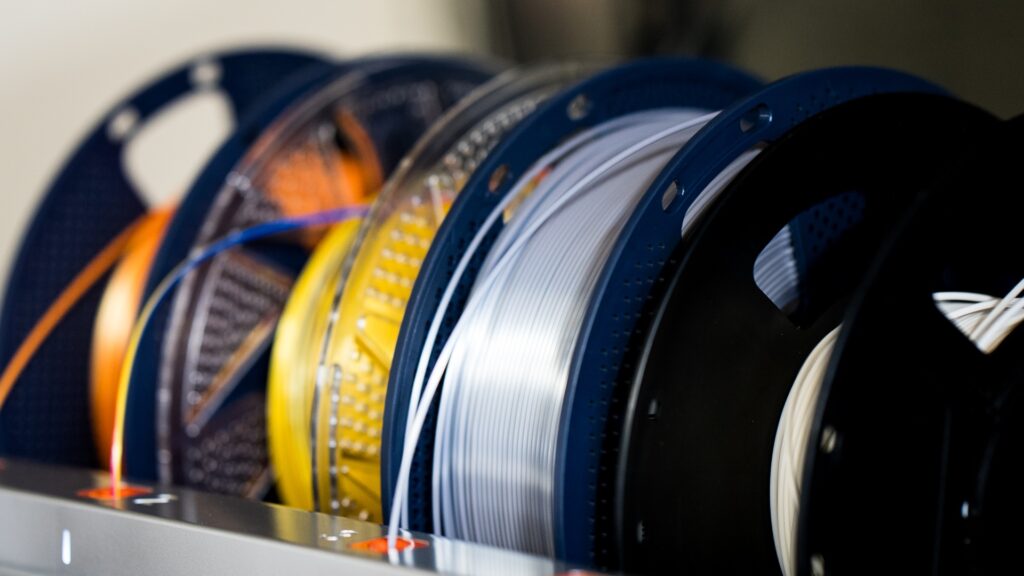
“3D3” stands for dream, design, and deliver.
As Maurice continues to gain 3D printing knowledge, he hopes to branch into more remanufacturing and adaptability projects.
“I want to start fabricating things they don’t make anymore,” he said.
Recently, he repaired a broken refrigerator handle for a client. “I used calipers and took measurements, shot the first one, found what was off a little, measured—then did another,” he said.
The flexibility of 3D printing gives it power, Maurice said.
“How many people have ideas? And to get it tooled, you’re talking about $10,000 to $20,000 sometimes. You can come to me for a reasonable price, and we can shoot out the idea so you have something to hold in your hand and show to potential investors and customers.”
Maurice said he is grateful for his instructors and looks forward to becoming an active member on the Project DIAMOnD marketplace.
“Learning new things is the way to live life,” he said. “It moves you forward in all paths. If there is something you don’t know about and someone is willing to teach you that for free, you take that opportunity.”
If interested in the Project DIAMOnD Academy, click here.
Dennis Burck is Automation Alley's Digital Content Editor, responsible for the organization's content strategy and development. Dennis is a media-savvy professional who builds relationships with Automation Alley members and partners to find and create the best and most relevant content to increase Industry 4.0 awareness and drive traffic to Automation Alley's Industry 4.0 knowledge center.

